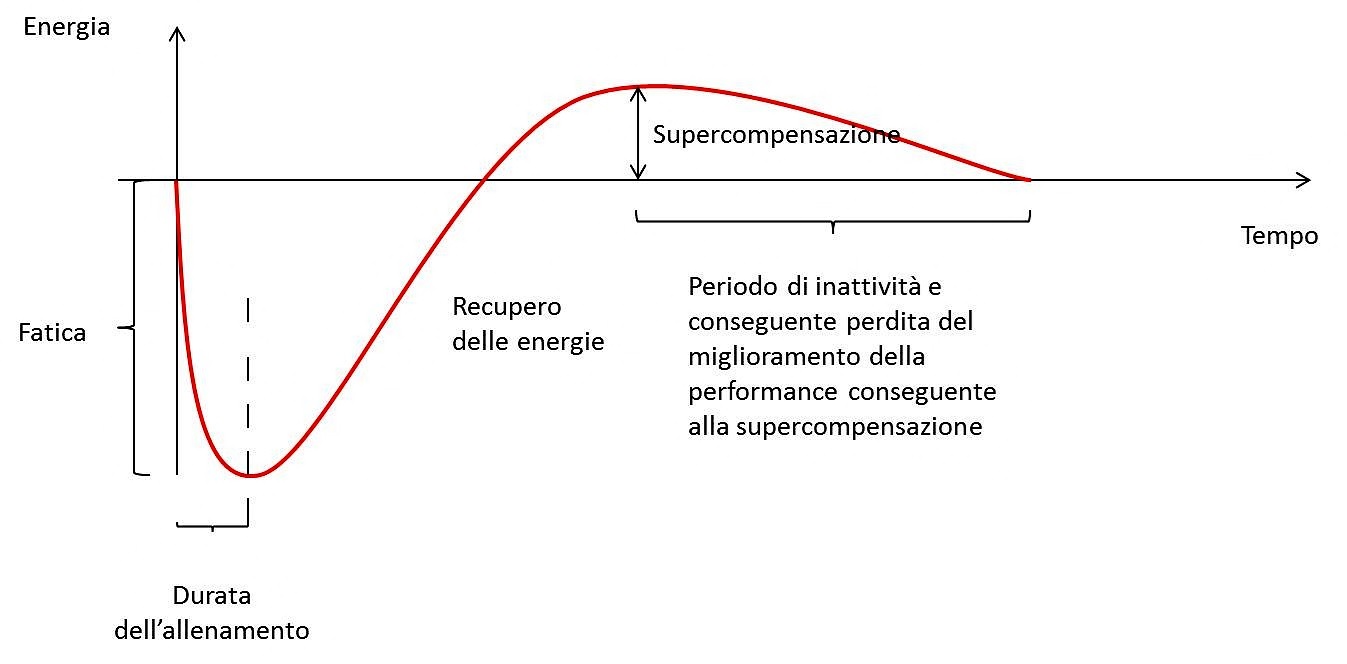it's not important to eat less, but to consume more
The modern science of food has ascertained how not always the increase of body fat is only linked to hyper-feeding. This sentence goes without saying to encompass a whole series of situations that are verified in cases of failure of the objectives related to the loss of body fat. A characteristic of fat is that an exceptional thermal insulator is a protection for our body when it is cold outside; in case of external cold our body tends to take calories more than carbohydrates and at the limit from proteins; fat only serves to protect us. Of course it is not enough to cover yourself well in a room, the nervous system is not so stupid and we absolutely must not confuse weight loss with dehydration. To an objective and easily verifiable analysis like there are people who eat quantities below the average yet not only do they fail to lose weight but even have a tendency to accumulate fat. This situation gives us the confirmation of the uselessness of the simple mathematical calculation for which it would be enough to remove 300-500 cal a day from the metabolic requirement to obtain the desired weight loss. One of the causes of an increase in the body's percentage of fat mass is the improvement of the quality of life with the availability of food at any time of the day and the technology that has led man to move less and less, favored by transport systems and increasingly refined movement (cars, elevators, escalators). Just think of our fathers and grandparents as an example to understand how much their life was more demanding than ours from the point of view of physical activity.
General features to get a good weight loss and the strategies to get it:
1) balanced diet with all the macronutrients present, personalization that takes into account the hormonal biotype, anamnesis and professional lifestyles
2) constant physical activity with choice of a prepared and available personal trainer.
3) positive and motivated mental attitude helped also by the surrounding environment.
STRATEGIES:
1) Never weigh food in a strictly binding manner : in most cases it is it is useful to do it only the first time after which it would be good to let yourself be carried away by a quantity guided by sight, or rather stick to a more visual dosage in such a way as not to generalize further stress.
2) consider planning a book day a week: it's a kind of premium day, of gratification for the work done during the week, this allows above all to have a carbohydrate refill and a weekly prize. Usually it is given a book a day a day, in which it is possible to eat whatever food because in reality in a single day it is difficult to overturn the metabolic fate that have been set in the previous days. Often the constant daily mini-concessions are much more dangerous: the so-called "taster".
3) Set yourself feasible goals : not 4-5 kg in 10-12 days, but goals more in scope especially from a temporal point of view: 3-6 weeks with objectives of 2-2.5 kg.
4) Eat slowly and get up from the table never satiated : the symptom of satiety always comes in a second moment compared to the moment in which we took the food. In order for the first signs of satiety to arrive at the brain, they must spend about 20 minutes from the moment they start eating. Satiety is a neurological response controlled by specific regions of the brain. It depends on some hormones, leptin and ghrelin. Chewing slowly can therefore help to curb unnecessary excess food.
5) Divide the meals into 4-6 a day : this allows us to get that which is commonly called as '' insulin calm ''. Blood glucose levels always remain stable, not having peaks that can lead to excessive food intake, thus favoring the transformation of excess calories into storage.
6) Have a fixed moment of comparison the comparison : in this aspect here is that the work of the nutritionist in the first place and the personal trainer in secundis can have a really important role in verifying if the programming is going the right way or possibly changing something (without ever dramatizing any failures).
7) Avoid weighing yourself more than once a week : in my experience in various fitness centers I it happens to see students that too often they get on the scale. They are subjects who continually weigh themselves with the hope of weighing less, taking into account neither muscle mass nor bone structure, hoping to weigh less and less. The result is an increase in stress (distress) which leads to a psychological failure in the event of unrealized values.
8) Do not trust the scale alone but rely on an anthropometric and bioimpedentiometric evaluation : as I it often happens that subjects that are trained above all for the increase of the muscular tone, after the first week they have an increase of weight mainly due to the stimulation of the lean mass that happens through the proposed exercises. The weight on the scale may seem the same but from a visual and practical point of view the appearance and tone are visually improved.
9) Opt for foods that are acceptable, easy to find and with simple cooking preparation : the food performs an anti-stress role for which from a psychological point of view it is fundamental. The possibility of eating food that is favorable to us is important because it infuses serenity, contentment and satisfaction. our mood will undoubtedly be very high, thus creating a situation favorable to weight loss.
10) In case of hunger attacks it is always useful to try to distract yourself: this is the case in example of weekends, or of those "dead" moments in which our thoughts can go only and exclusively to food; in this case it is useful to use all those psychological distraction processes such as leaving the house, reading a book, watching a movie.
11) Avoid every stressful situation as far as possible : we know very well that stress, in In the case of weight loss processes it is a negative factor that can slow down or even interrupt the weight loss process itself, causing an increase in cortisol cortisol levels.
Diversifying food strategies : The nutritionist has the task of varying the quantities and quality of foods as much as possible so as not to create a phase of stasis and negative adaptations. For this reason, alternating various types of food on a monthly or weekly basis can also be a valid support in light of the fact that there is no ideal diet.
And finally:
In light of all the considerations we have made, we can say that there is no ideal diet for everyone but a diet that must be personalized on the person starting from the biotype, the anamnesis and the choice of the activity done as well as from the daily professional life. There may be cases in which it is not possible to respect certain dietary rules and here comes into play the good sense of the subject who will have to choose between the types of food those which, compared to calories, he considers lower according to the guidelines given by his own nutritionist or personal trainer























































































































































































